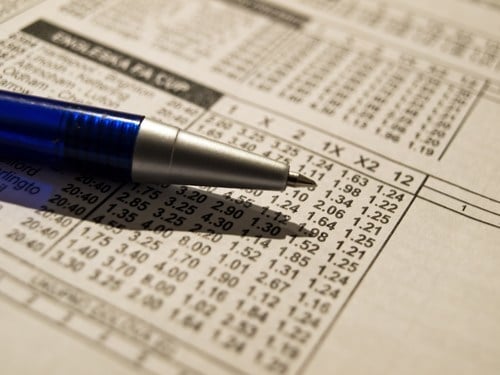Posted on September 6, 2016
China investors aiming at arbitrage profits make Hong Kong shares soar | Reuters
Several days
later, China allowed insurers to buy shares listed on GEM.
China’s 5 trillion yuan ($807.36 billion) mutual fund
industry is already getting into position.
($1 = 6.1930 Chinese yuan)
On Wednesday, Chinese investors used the entire 10.5 billion
yuan ($1.69 billion) daily investment quota for
buying Hong Kong stocks under the Shanghai-Hong Kong Stock
Connect scheme for the first time.
* Investors see HK shares as less bubbly than mainland
stocks
* Previous attempts failed on tepid demand for HK shares
“With such a big price gap, why don’t I buy stocks in Hong
Kong, especially if it’s the same company?” said Xia, chairman
of Liuhe Capital, which has started buying Hong Kong stocks.
The mainland market is now seen as bubbly without growth,
while Hong Kong has value but lacks liquidity, he said.
In the past, arbitrage opportunities proved a mirage. In late March, China’s
securities regulator improved access, letting mainland mutual
funds invest in Hong Kong shares via the connector. “The current huge valuation gap and the excessive liquidity
in mainland funds is raising interest in Hong Kong stocks,” said
UBS strategist Lu Wenjie, noting Chinese small-caps trade at
around 100 times earnings on average, compared with just 10
times for Hong Kong peers.
This propelled the Hang Seng China Enterprises Index
up 5.8 percent, following a 6.43 percent gain last week, and
helped the Hong Kong exchange reach record volume on Wednesday.
“Regulators seem to be very supportive for local funds to
invest in Hong Kong and … So lowly-valued Hong Kong stocks are
becoming increasingly attractive to mainland investors,”
Borsera’s fund manager Zhang Xigang said, predicting that
China’s mutual fund industry would soon start pumping liquidity
into Hong Kong.. The
Shanghai-Hong Kong stock connect not only failed to narrow the
premium after its November launch but actually widened it as
Chinese retail investors declined to move money south.

As a result, mainland-listed blue chips are now about
one-third more expensive than their Hong Kong versions – as
measured by the China-Hong Kong price premium index -
while Chinese dual listed small-caps trade at a premium of 10
times the cost of the same company’s shares in Hong Kong.
(Reporting by Samuel Shen and Pete Sweeney; Editing by Nachum
Kaplan and Richard Borsuk)
“There are not many good investment opportunities here, so
we would naturally want to hunt for new targets elsewhere,” he
said.
Shanghai-based hedge fund manager Xia Xiaohui thinks such
price differences cannot last.
“With the two markets increasingly connected, this is an
obvious arbitrage opportunity.”
Domestic fund managers say they are seeking to exploit a
major pricing imbalance between the markets, the result of a
mainland rally that until now showed little sign of spilling
over into Hong Kong.
Invesco Great Wall Fund Management Co is launching China’s
first actively-managed mutual fund to invest via the
Shanghai-Hong Kong Connect, describing the Hong Kong market as a
“gold mine”, and “a low-lying land” in terms of valuation.
Borsera Asset Management Co plans to launch a similar fund this
month.
Including Wednesday’s gains, China’s CSI300 index
has soared 92 percent during the past year while the Hong Kong
China Enterprises Index is up 29.8 percent.
By Samuel Shen and Pete Sweeney
* Chinese funds buying HK shares ahead of Shenzhen pilot
Small caps expected to become eligible for mainland
investment when the Shenzhen leg of the stock connect opens -
anticipation is for this year – benefited even more. there’s real demand and real
interest from local investors.”
David Dai, Shanghai-based investor director at Nanhai Fund
Management Co, a hedge fund, said he would buy Hong Kong shares
in part because he thinks valuations on mainland exchanges are
overheated.
SHANGHAI, April 8 Chinese funds are snapping up
shares in Hong Kong, betting that a link-up between the Shenzhen
and Hong Kong stock exchanges, and easier access for
institutional investors, will yield quick double-digit or even
triple-digit arbitrage profits.
But this time may be different. Hong Kong’s
Growth Enterprise Market(GEM) shot up over 10 percent
in the same period, its biggest weekly gain in nearly six years.
* Funds trying to arbitrage major price differences
LARGE PRICE GAP
PUMPING IN LIQUIDITY?

“Water flows downward

